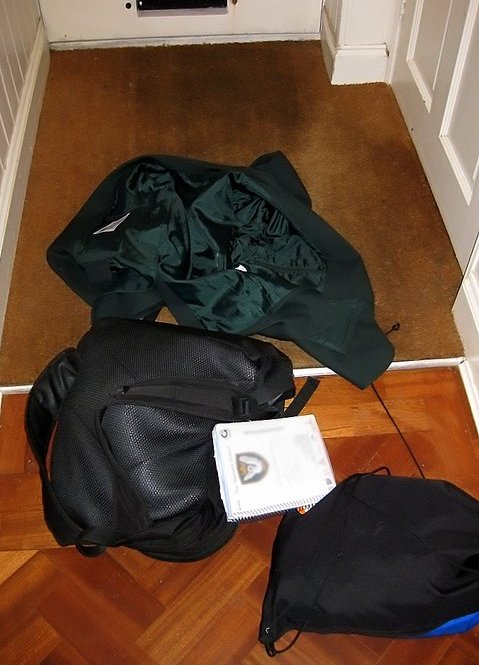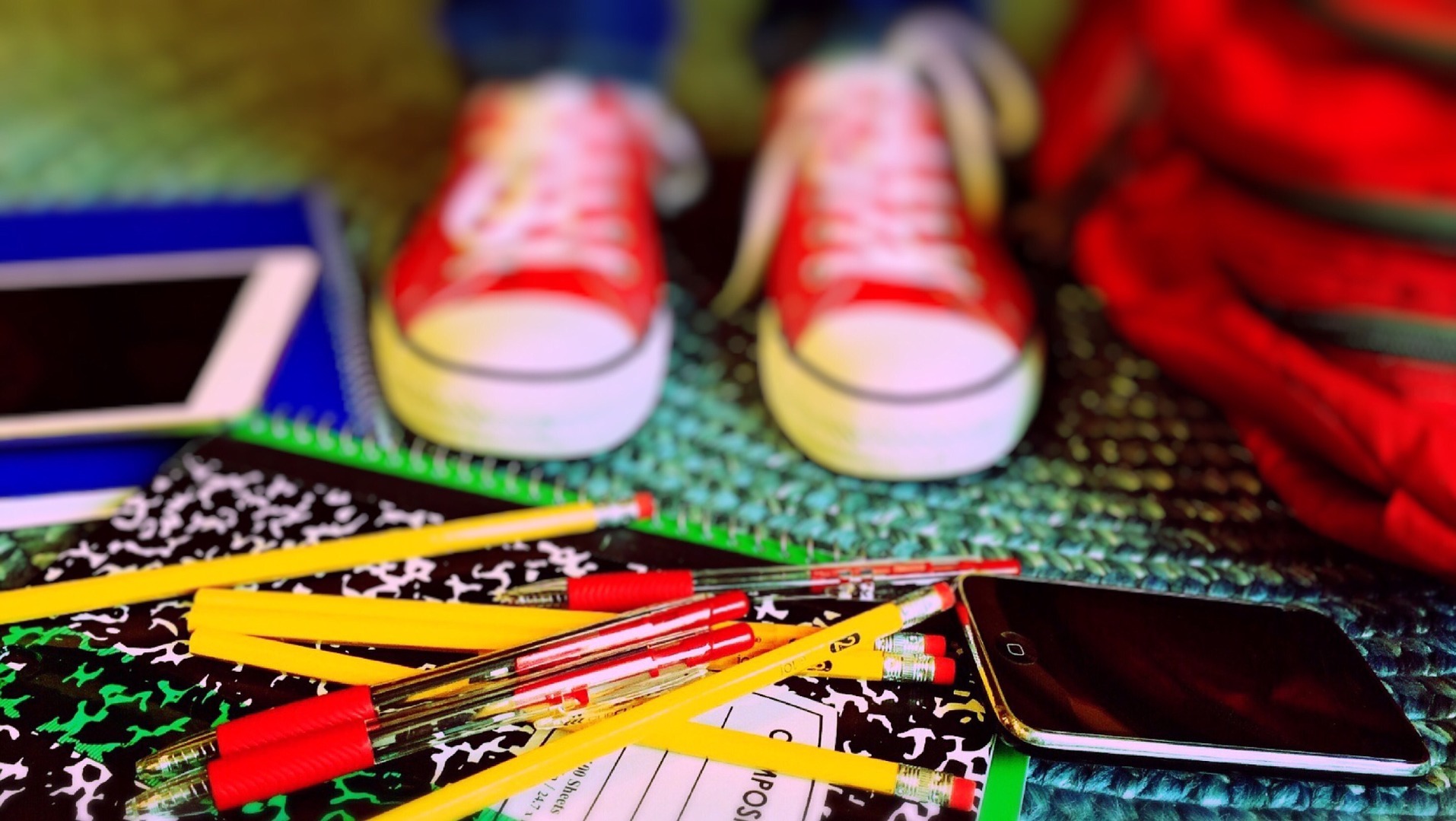Regardless of their age or ability, it’s my belief that ‘Home’ should be every child’s soft place to fall in the world: somewhere they can lower their barriers, remove their masks and know for certain they’ll be accepted exactly as they are.
If your child is on the autism spectrum, this is doubly important. It can also be doubly difficult if you have no previous experience of this style of parenting.
One of the most common challenges you’re likely to face is getting your child to go back to school after the long summer break. Assuming ‘Home’ really is their favourite safe space, can we blame them for being reluctant to leave it after six weeks away from the noise, confusion, bright lights and overwhelming social expectations of the schoolroom? Not at all; but if this is the education path you’ve chosen for your child, they’ll have to learn to manage it somehow, and the good news is that there’s lots you can do to help.

The complex and often baffling needs of each individual autistic child could never be explained in a single post (or in a thousand posts, for what it’s worth) so these strategies might need a bit of adapting, but the tips listed here will definitely give you a framework to use that’ll help ease your child back into school after the holidays. Whatever your child’s age or ability, the basics are the same: establish a routine and do a whole lot of preparation.
What’s staying the same?
When you’ve got any kind of adjustment coming up, it’s very tempting to focus solely on what’s going to be different. Preparing your child for the things that are about to change is hugely important, but always remember to focus on just how much will be staying the same.
Remind them that their family will still be there at the start and end of every day, that they can still enjoy their favourite pastimes, and that the wider world outside school will carry on as usual.
If you can, engage them in a game of ‘What’s Staying the Same?’ and start with the basics like ‘the sky will still be blue’ or ‘my eyes will still be brown’. Point out how funny it would be if their eyes changed colour every time they changed classes and encourage them to come up with some outrageous suggestions for eye colours like ‘pink polka dots’. Anything that gets them laughing about the situation will ease the tension no end.
If they’re visual learners, draw or print out pictures of everything you’ve discussed and make a collage they can use to help get the changes into perspective.
I’ve met many parents over the years who feel it’s best to ignore changes and not make a fuss about them, thinking their child will just take it in their stride if they play things down, but that’s definitely not the route I’d take.
Any period of transition will disrupt an autistic person’s routine and can make them feel wildly out of control, so reassuring them in whichever way works best for them is vital for their peace of mind. Using social stories and visual timetables to explain any changes to their routine can really help with this process too.
How do we prepare for their first day?
Autistic people are very sensitive to their environments, so they often need a bit more time to process changes.
Gradually reintroduce their school sleep routine (prepare to be unpopular if you have to move their bedtime forward or wake them up earlier). Start dropping school-related topics into your conversations like ‘What would you like in your packed lunch when you go back to school?’ and if you can, drive past the school and talk about what happens during the school run.
Inevitably as the time draws nearer, you’ll have to face something all parents dread: ‘back to school’ shopping, and my advice here would be to do as much of it online as you can.
My children don’t cope well with department stores and crowded shopping centres, which is much less of a problem than it was years ago, as so many organisations offer free delivery and returns nowadays.
Once you’ve survived getting them into their new uniform, encourage them to wear their school shoes around the house so they can get used to the different sensory input they’ll experience. Remove all tags if these are an issue (these are a HUGE issue in my house), open and close any buttons until they stop being stiff, and wash everything using plenty of fabric softener to stop their clothes being scratchy or ‘smelling wrong’. If their sensory issues are very severe, you could use specialist clothing from various retailers including Marks & Spencer – their Easy Dressing Range is very good.
If possible, go and see their new classroom, meet their new teacher, take a tour round their new school, college or university and explain your child’s specific needs to the relevant staff. Push through any feelings of embarrassment about being ‘that’ parent, and focus instead on building a solid working relationship with their teachers where you team up and provide the individual support your child needs in order to thrive.
Which suggestions should I make?
Since all autistic people are different, there are endless suggestions you can make that will help their school day run more smoothly; here are some of my favourites:
1. Do your best to arrange a buddy system and/or a quiet place they can use at break times. Filling unstructured time can be very difficult when you’re on the spectrum.
2. Give your child a notebook and encourage them to write down anything that bothers them during the day – this can be a great way to reduce their anxiety levels. Make sure their teacher understands what they’re doing and that the book is private, then if possible, read through it together in the evenings to give you ideas about what to work on next.
3. Make sure your child knows who to speak to if they’re lost or if something unexpected happens like a fire drill. Explain how your child responds to stress – perhaps they ask endless questions, or maybe they shut down and say nothing at all – so their teacher is able to spot the signs and diffuse the situation before it gets out of hand.
4. Help your child’s teachers make their classroom environment more autism-friendly. There are hundreds of suggestions for making this happen here: Autism-Friendly Classroom Checklist
5. Organise somewhere your child can go and chill out if they get overwhelmed. Many schools have great pastoral care nowadays and offer quiet rooms for children to use if they’re in distress. If the room doesn’t have any sensory toys, bring in your own and leave a bagful in there for emergencies.
What about after school?
All parents know their children need to let off steam when they come out of school, but for autistic children this time of calming down and processing the day’s experiences is absolutely vital.
To make the transition from school to home a bit easier, start the cool-down process in the car or on the bus: take snacks and drinks, fidget toys or handheld games. Resist the urge to push them for details about their day, because their brain will be overloaded and exhausted from processing all the new information. Instead, let them unwind in their own way, whether that be watching TV, playing video games, reading quietly or stripping off their clothes, shouting, bouncing and running around at top speed.
The following image (which was only the beginning of the nightly trail of discarded ties, socks, shirts etc.) will probably be familiar to many of you…

Clues discovered by the front door would indicate that Aidan
came home from school and promptly evaporated.
The bottom line here is that different children have different needs when it comes to unwinding, so whatever they prefer to do, give them the space to get on with it. This isn’t giving in to your child, spoiling them or letting them get their own way, it’s understanding and accepting them for who they are. They can’t ‘just deal with it’ like most children do, and by letting them be themselves for a while, you’ll notice their anxiety levels reduce significantly.
If you need some extra help handling stress, I can definitely recommend using a relaxation programme called Increasing Inner Calm. It’s helped thousands of families including my own, and focuses on being more relaxed, confident and calm under pressure, as well as improving the quality of your sleep. Anyone can use it, whether they’re autistic or not, and it’s great to fall asleep to at night. It also includes a trigger you can use afterwards to instantly reduce your stress levels – something I’ve found absolutely invaluable on the school run.
No amount of advice will make every school day plain sailing (I have four children on the spectrum so I’m the last person who’d suggest something like that) but hopefully this post has given you some ideas you can use. Let me know how you get on, and if you have any tips of your own, I’d love to hear them. Good luck, and remember to keep your sense of humour!

![]()



4 Comments
Great advice, I’ve shared it with my friends with autistic children
That’s great Jenny, thank you so much for sharing it.
I with I had read this before the summer holidays. Most of these things are now in place but they weren’t previously. I didn’t mention school for the summer holidays and we had a huge melt down the first night back. This is all so new to us. I will take sure to read your blog more often, Thank you.
Awww, you’re so welcome Emma. Believe me, this advice has been learned the hard way over many, many years (my eldest son is coming up 27 now) so I did exactly what you’ve just done for ages and wondered why there were always meltdowns. I’m just glad to be able to be there for other people to give the kind of advice I wish I’d had at the time. Good luck with it all!